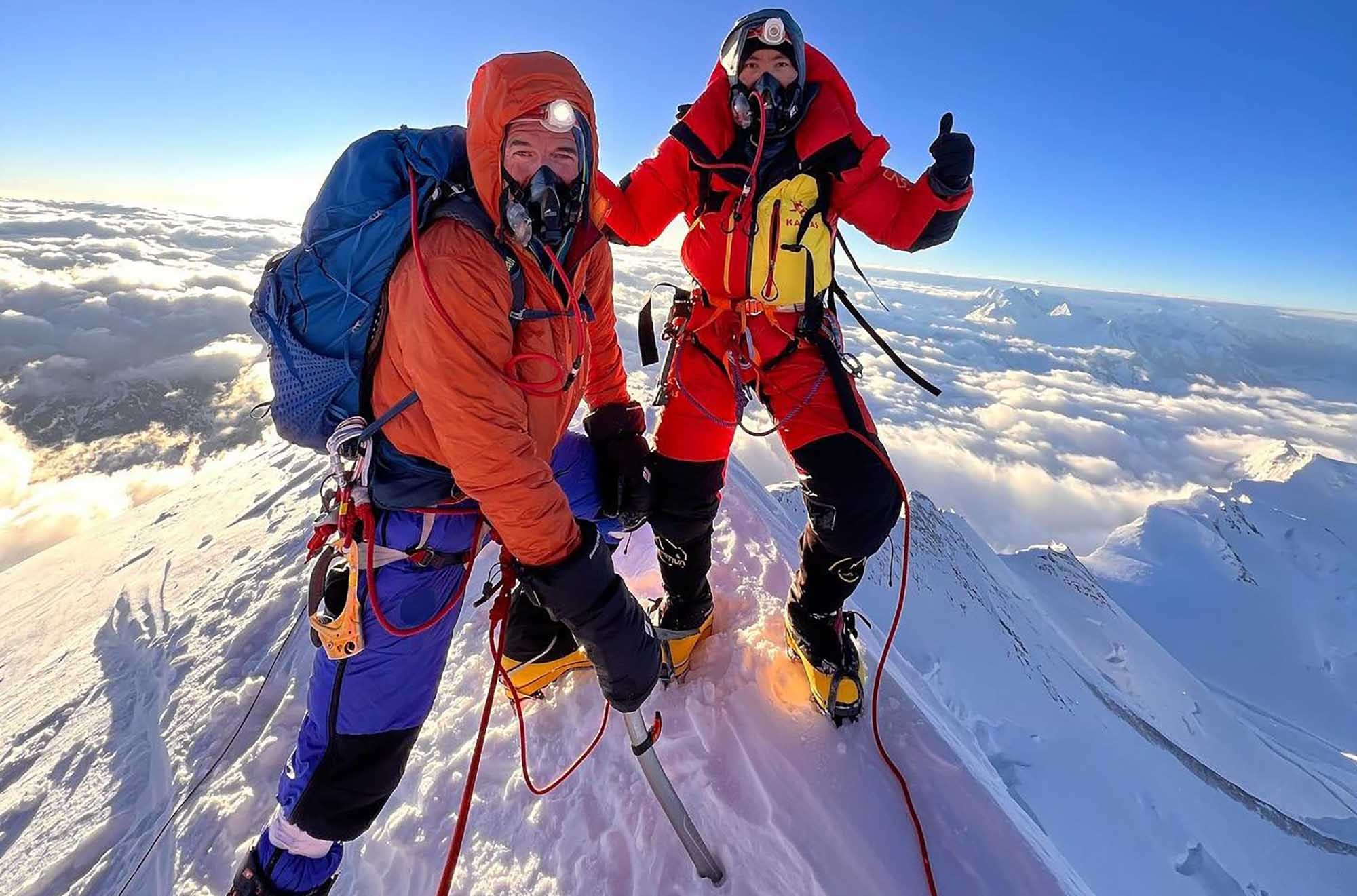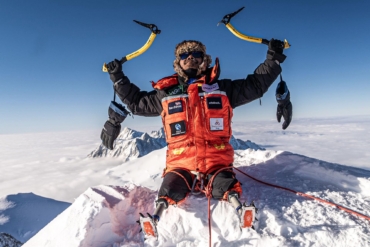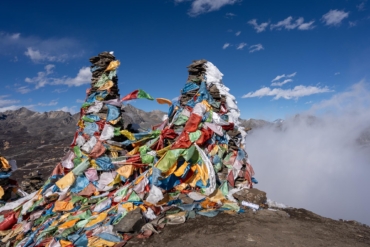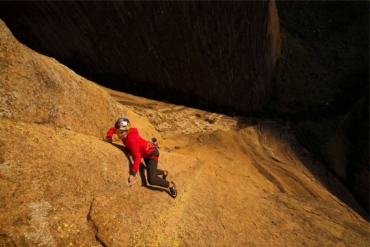Of Reinhold Messner’s many alpine accomplishments, one stands out among the rest: becoming the first person to climb all 14 of the world’s highest mountains.
Before Messner, no one had come close to reaching the summit of every mountain taller than 8,000 m. Strewn throughout the Himalayas, each one of these dangerous, difficult mountains represents a lifetime achievement. Messner climbing all of them — without supplementary oxygen — long represented one of the greatest feats in the history of alpinism.
And now the Guinness Book of World Records has officially stripped Messner of that title, thanks to the research of a German historian who has never visited the Himalayas.
Eberhard Jurgalski, who runs the website 8000ers.com, concluded that Messner never reached the “true summit” of Annapurna. The famed mountaineer still had 15 feet of altitude left, according to Jurgalski, who convinced the Guinness Book of World Records to strip Messner of two titles: the first person to climb all 14 peaks over 8,000 m and the first to do so without oxygen. Officially, the record now belongs to American climber Ed Viesturs, who finished all 14 peaks in 2005.
In response, Messner has called Jurgalski “clueless,” pointing to alpinism’s inherent subjectivity.
“Last statement about records in alpinism! There are none!” he said in the Instagram post below. “I am and remain the conqueror of the useless, but I have gained so much in my life that I can proudly say today I am a happy man!”
The New Math of Mountaineering
For nonclimbers, it’s hard to understate Messner’s significance.
Stripping these records would be like the NBA taking away Michael Jordan’s six MVP titles because a number-cruncher decided he made one less three-pointer. It’s like Serena Williams losing her GOAT-like status because of a technical foul discovered decades after winning her 23rd Grand Slam.
Of course, the problem with these analogies is both those sports have referees.
Because alpine achievements tend to happen on far-flung mountains, the sport has long relied on a loose set of rules that boil down to “pics or it didn’t happen.” Jurgalski likely sees himself as the referee that alpinism needs.
“If someone wasn’t on the summit, then he just wasn’t at the top,” Jurgalski told Stefan Nestler of Adventure Mountain. “It’s like 1 plus 1 equals 2. For example, would a pop star who has landed 13 number-one hits and one at number two be credited with having been at the top of the charts 14 times?”
Jurgalski and a team of researchers spent 10 years investigating claimed ascents of the 14 peaks over 8,000 m. By relying on satellite mapping to fact-check the claims of climbers, Jurgalski has essentially improved standards for alpinism, said Craig Glenday, Editor-in-Chief of Guinness World Records.
“In the same way that we require marathon runners to finish the full 42.195-km (26.219-mile) course and circumnavigators to cover at least the 40,075-km (24,900-mile) circumference of the Earth, for a mountain climb to qualify for a Guinness World Records title, we must insist on a base-camp-to-true-summit ascent, as per the updated 8000ers.com guidelines,” Glenday said.
Mountains Under Threat
It’s clear that many climbers and climbing spectators chafe at the idea of rewriting alpine history. And looking at the bigger picture, it might be easy to shrug off news of an alpinist losing a record that he never cared about in the first place. There’s nothing wrong with increased accountability, right?
The problem is that Guinness’s decision to strip Reinhold Messner’s titles comes at a time when alpinism has become highly commercialized, and even professional climbers aim for easier routes and style.
Just look at the two biggest media darlings of alpinism in the last few years: Nims Purja and Kristin Harila. Each set new records while summiting all 14 peaks over 8,000 m — and each faced criticism for their methods.
Both Purja, a Nepali, and Harila, a Norwegian, used supplemental oxygen during their ascents. Jurgalski’s research suggested Purja — and the majority of climbers on Manaslu — never reached the mountain’s true summit. Harila’s record, completing all 14 peaks in an astonishing 92 days, has been questioned because she sometimes used helicopters for transportation. She’s still enduring a media backlash for allegedly passing a dying climber on her way to the K2 summit.
More generally, mountains like Everest and K2 have become case studies of what happens when alpinism becomes a profit-driven enterprise: more deaths, more inequality, and piles of trash and human bodies left behind.
No one seems more aware of the contradictions of modern alpinism than Messner himself. In a recent Instagram post, he reflected on why it’s only now that the world decided to care about the details of his ascent of Annapurna in 1985.
“It is a bit funny that again and again, people use my person, my name, to make themselves important,” Messner wrote. “Because they themselves have nothing to tell? Have achieved nothing? Did not have the courage to realize their dreams? All about money, right? Only thoughts … Annapurna.”








